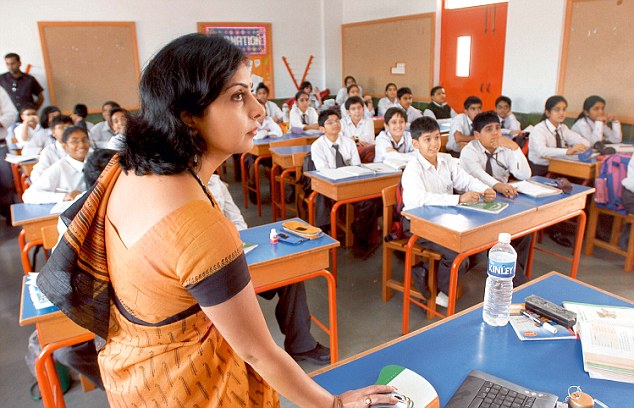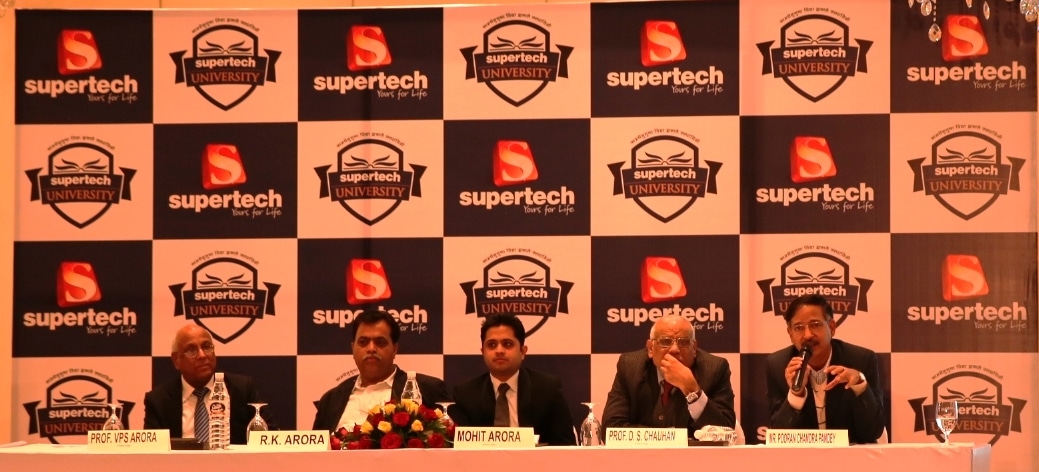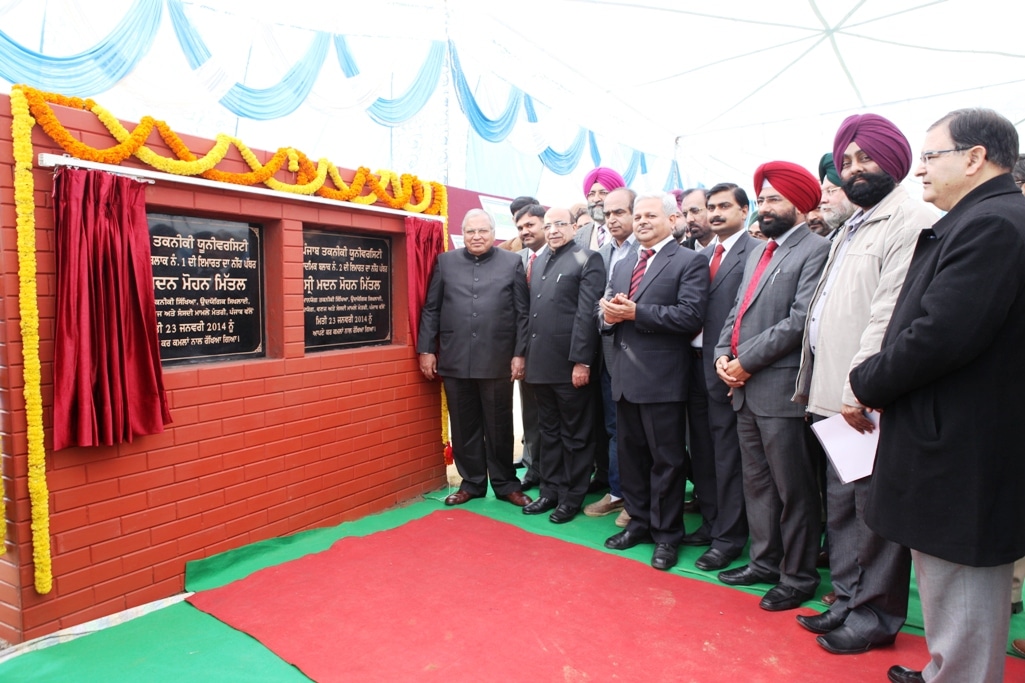A new 30-hour credited course in media basics has been launched by the Cluster Innovation Centre (CIC) at Delhi University.
The idea behind starting the course is to create awareness among students about communication and how it is handled through TV channels, print medium and online. The course also deals with the importance of ethics in media. The BTech in humanities already includes a course in journalism and now the media course has been added. The new course is open to all students of CIC. The course will focus on electronic media and improve presentation and communication skills of the participants. The areas that would be covered would include social broadcasting, understanding TRPs, environment and wildlife programming, sports production and art of video editing. Students would get credits for the course. The course will be taught by industry experts and faculty from CIC. Classes would not be conducted in the chalk-and-talk mode but would be interactive. On completion, students would be awarded a certificate.
Delhi University introduces new course
Rush at NAAC for accreditation
National Assessment and Accreditation Council (NAAC) is being thronged by application of various universities and institutes across the country seeking accreditation from the agency.
Institutions of higher learning like Delhi University, Jamia Millia Islamia, School of Planning and Architecture, Anna University, Indian Institute of Science and National Law School, Jadavpur University and Assam University among 2,978 others have sent their letter of intention (LoI) to the accreditation agency between January 19, 2013 to December 19, 2013. This is the highest number of LoIs received by NAAC. Region wise the highest number of applications are from east and northeast, while in as a state Bihar has the largest number of participations. Following Bihar (280) in terms of states with largest applications are Madhya Pradesh (278), Tamil Nadu (238), Karnataka (217) and Rajasthan (193). Nine universities and nine colleges have applied from Delhi.
The move comes in the backdrop of Rashtriya Uchchatar Shiksha Abhiyan (RUSA) where it has become mandatory for government run higher education institutions to get accreditation to receive funding. With increased applications, according to A N Rai, Director, NAAC, “the first priority is to strengthen the headquarter in Bangalore and then decentralise the process of college level accreditation process. The regional centres will be responsible for the assessment process – right from receiving the LoI to Institution Eligibility Qualification Assessment, followed by self study report to visit by the expert. Only the final approval of the grading will be done in Bangalore by the executive committee.”
IGNOU to offer scholarships for poor students
Children from economically backward families will soon be awarded scholarships by the Indira Gandhi National Open University (IGNOU). The effort will be made to make education free for such students who opt for IGNOU courses.
M Aslam, Vice Chancellor, IGNOU announced on the occasion of the Republic Day celebration that a Kendriya Vidyalaya school and a playground for children of IGNOU employees shall be set up so that children in the complex don’t have to go too far for education. This is an effort by IGNOU to uplift the weaker section of the society and give every child an access to education. On the occasion, the Vice Chancellor also emphasised that with 153 academic programmes which are as per statutes of the university, the enrolment figures have been rising steadily which has been possible due to persistent efforts of the Regional Directors all over the country who have been visiting the areas in their regions personally to encourage the people to join IGNOU courses.
SUK approves combined scoring for distance education PG exams
The academic council of Shivaji University, Kolhapur, has approved the combined scoring system for post-graduate students of arts, commerce and science streams through distance learning mode.
The new system has come as big boon to the students. It will help them score the combined minimum pass marks in theory and internal examinations and move on to the next semester in a particular subject. Earlier, the students had to score the minimum pass marks separately in the theory and internal examinations.
The board of studies members discussed the proposal and put it before the academic council members after a thorough revision. But the new move comes with a word of caution for the students. The introduction of the new system does not mean that the university is letting the students go off the hook. They will have to score a minimum 40% to pass the examinations. The new system will be implemented from the summer examination and will help over 10,000 students.
Schools asked to refund access fee: High Court to Delhi government
The Delhi government has been directed by the High Court to ask nearly 250 institutions to return the excess amount to parents with nine percent interest. The order comes in the backdrop of the recommendations made by a panel on the unaided private schools’ fee structure. The committee has submitted four reports based on examination of fee structures of unaided private schools. A division bench of Justice BD Ahmed and Justice Siddharth Mridul told the Delhi government that it is free to implement the recommendations of the commitee.
The committee has so far examined the accounts of 605 unaided private schools out of a total 1,172 institutions. Till now, the committee has recommended that 242 schools should return excess fees they have collected from the parents with nine percent interest from 2008 to 2011. The committee found that in around 100 schools, either no records were maintained or the accounts were fudged. It recommended strict action against these schools. The committee report further said that many of the schools in the city were operating without even a bank account and year after year they were granted recognition. The report also found that several of the schools have not been maintaining proper accounts and were not getting their accounts audited as required by the law, and were also not filing annual returns.
New Zealand to increase its education presence in India
In an attempt to attract more students from India, New Zealand plans the establishment of an education promotion and market development role within its Consulate General in Mumbai. The Mumbai expansion comes on the backdrop of increased activity in India, including a new brand launch, acknowledging India’s position as New Zealand’s second largest source of international students.
Student visas issued to Indian nationals seeking to study in New Zealand increased more than 10 percent last year, making India one of the fastest growing student markets for New Zealand. More than 11,000 students from India study in New Zealand, as a result, the country has put in place policies to make the country a top choice for international students. The New Zealand government has also announced changes to the work rights programme which will allow more international students to work while they study, enabling them to gain valuable first world business experience.
Admissions for new IIMs to be handled by IIM Trichy
The Common Admission Process (CAP) for the six new IIMs at Kashipur, Raipur, Ranchi, Rohtak, and Udaipur will be conducted by IIM Trichy between February 18 and March 12 this year. The shortlist percentile cut-off for the written ability test (WAT) and personal interview (PI) have been released by the institute.
The minimum percentile to receive an interview call from newer IIMs is 96.82. The candidate should have a minimum quantitative and data interpretation percentile of 70.77 and should have scored at least 71.09 percentile in verbal to sit in the process. IIM Trichy is expected to call around 10,000 candidates for the combined strength of around 800 seats in the six new IIMs.
When the newer IIMs started, the number of faculty was limited and CAP helped to save on manpower, time, and effort by sharing the resources. It is also beneficial for students as they don’t have to travel to different locations for multiple interviews.
Real Estate developer Supertech launches university
Diversifying into education, Supertech Limited, real estate developers, announced the launch of Supertech University which is to be set up in Udham Singh Nagar district of Uttarakhand. It is an initiative of Supertech Foundation.
A 47 acre of lush green campus is located approximately 237 km from Delhi. Supertech University aims at creating a value-based, innovation driven, and research led world-class teaching and learning environment. The university will offer programmes in the domains of Architecture and Planning, Earth, Environment and Space Studies, Education, Engineering and Technology, Fashion and Design, Hospitality and Tourism, Languages and Communication, Law and Governance, Liberal Arts, Humanities and Social Sciences, Management Studies, Medical and Health Sciences, Natural and Applied Sciences and Public Policy.
The university promises to provide rich intellectual capital in the form of committed patronage, mentoring, and guidance by the former and sitting Vice Chancellors, corporate leaders, scientists, reformers, and former ambassador and a balanced focus on capacity building, consulting, education, innovation, research and skill development activities.
PTU expands its Kapurthala campus infrastructure
Punjab Technical University (PTU) is expanding its Kapurthala campus infrastructure. It plans to come up with college buildings, library and seminar hall. The total floor area of the new infrastructure shall be 3.4 lakh sq. ft. and is estimated to cost Rs 80.5 crore.
While laying the foundation stone, Madan Mohan Mittal, Technical Education and Industrial Training minister, Government of Punjab, said, “PTU has been taking phenomenal strides when it comes to furthering technical education and it is only logical that the university would require more space and infrastructure to meet its objectives.” The two new college buildings would be able to house 1200 students, the three-storied library shall have 3 lakh books while the single-storied seminar hall would be able to accommodate 150 people. The college buildings are estimated to cost Rs 63.17 crore and the library and the seminar hall is estimated to cost 17.33 crore. On the occasion, Dr Rajneesh Arora, Vice Chancellor, Punjab Technical University said, “If we are aiming to become a global hub for higher education then our infrastructure too should match the international standards. The facilities on the anvil shall be equipped with the latest technology and devices.”





























